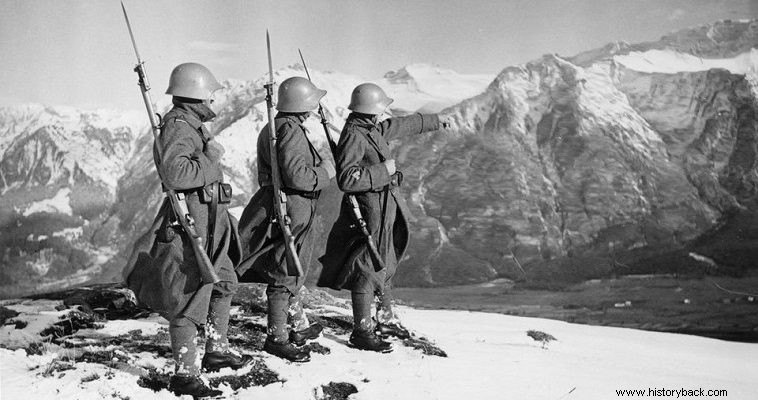
The state of Liechtenstein appealed to the European Court of Human Rights, in order to be granted by the Czech Republic territories, which were seized in 1945 from Czechoslovakia. Liechtenstein has filed a formal complaint, seeking the return of approximately half a million acres of land and some of Europe's largest castles and palaces.
As the country's foreign minister, Katrin Eggenberger, told the Financial Times newspaper, "For us, the illegal implementation of the Czechoslovak decrees and the consequences have been an unresolved issue," adding that "Expropriation without compensation is unacceptable."
Land grab from Czechoslovakia
After the defeat of the Nazis in World War II, the post-war Czechoslovak government labeled the Princes of Liechtenstein and 38 other Liechtenstein families "Germans". The area complained of is 10 times larger than the area currently occupied by the principality of Liechtenstein, which is home to majestic castles and aristocratic palaces, including two UNESCO World Heritage Sites. The Neo-Gothic castle of Lednis, which was also the residence of the Lichtenstein family for over 700 years before it was confiscated, as well as the castle of Valtis.
In addition to the disputed assets previously belonging to the princely house of Liechtenstein, the case involves a further 38 people and includes corporate holdings and business interests. "The case is about fundamental issues of sovereignty," Ms. Eggenberger said, adding, "We're not doing this just because the mansion is involved. This also applies to our 39 citizens involved in the case. . . The smaller the country, the more important it is to defend its rights".
The position of the Czech Republic
For his part, Czech Deputy Foreign Minister Martin Smolek said his country's view was that the case should not be considered by the European institution because the Strasbourg court did not deal with issues that predated the drafting of the European Convention on Human Rights. "We also think it's a strange use of the treaty to use it in a case where there is a very limited group of people – frankly one person – whose rights were allegedly violated," the Czech minister said.
Both he and Ms. Eggenberger expressed hope that the affair would not damage their relationship. The two countries formally established diplomatic ties in 2009 as a result of the long-running dispute. The case, filed by Liechtenstein on Wednesday, is essentially an appeal of a ruling by the Czech Republic's constitutional court in February. The court ruled against the princely house in a case challenging the ownership of 600 hectares of forest near Prague that formerly belonged to the house of Liechtenstein.
The story of the family and the principality
The Liechtenstein family was one of the great aristocratic dynasties under the Austro-Hungarian Empire. With the collapse of the Habsburg dynasty in 1918, the empire collapsed, creating a mosaic of new states. The princes of Liechtenstein owned lands that were assigned, after World War I, to the new state of Czechoslovakia.
About 3 million Sudeten Germans lived in Czechoslovakia at the time. In 1938, shortly after the union of Austria with Germany, the ruling prince of the house, Franz Joseph II, who lived in Vienna, left it to settle permanently in Liechtenstein. The principality remained neutral throughout the war. The family remains an important landowner in many other parts of Central Europe. The lands seized from Prague, however, remained the bone of contention.
SOURCE:SPUTNIK
